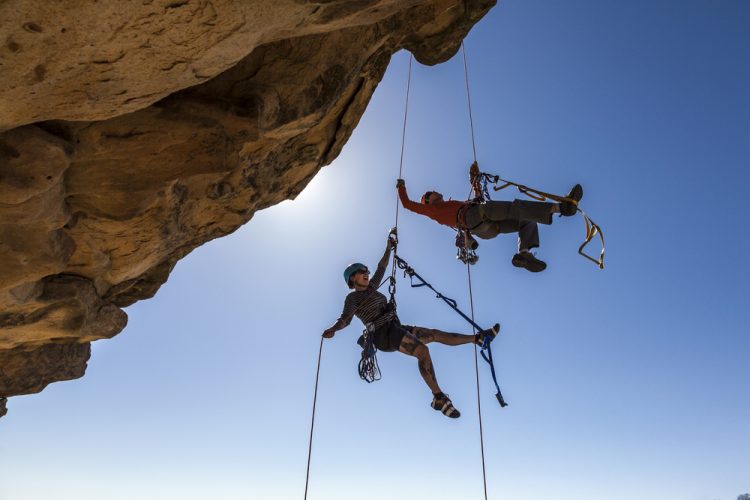Guest blog
If you want to grow a culture of inclusive leadership, try female-only learner groups.
Business outcomes and profit margins improve when leadership teams are diverse. Alison Sherry examines the case for developing leaders using a different approach.
How do we get more women into leadership roles?
Research shows that better business outcomes and improved bottom lines result from diverse senior leadership. Yet over 80% of board seats globally1, still belong to men. Women continue to be under-represented at all levels of leadership, particularly senior levels. We have had legislation and many initiatives to get a better balance of diversity and inclusion within business, yet little seems to change. How can we improve the balance?
Alison Sherry specialises in leadership development and coaching. Whilst much of her work is with mixed gender groups, Alison has done a lot of work with women-only groups and has made some interesting discoveries.
Female only leadership development
Alison explains that although it may seem counter-productive to have women-only groups, a lot of benefits occur.
“A question that is often asked is, why would you separate female and male leaders if the organisational intent is to be more inclusive?” Alison says. The feedback and experience of working with women-only groups to develop their leadership skills, has resulted in powerful and impactful benefits.
“Women can feel the need to bend out of shape, to fit into what are persistently very masculinised environments, changing their style to fit the organisation, rather than being the sort of leader they can naturally be. Women-only development programmes give able and talented women, the space they need to ‘claim their ground’ and progress through the talent pipeline using their own style. Encouraging women to be the leaders they can be, is vital to creating progressive, balanced and inclusive cultures.”

Many women still find they are in a minority, in their day-to-day working environments.
Being in a development programme with other women enables an immediate sense of connection. It creates a space to build better understanding of what it’s like to be a female leader within the system, or organisation they are in.
Women-only groups allow a sharing of experience on a deep level. It also encourages an understanding of how cultural and systemic assumptions and patterns have shaped their own assumptions and behaviours. Not all of these assumptions or behaviours2 are helpful, either to the individual women, or their organisations.
How does it work?
Alison uses a range of dialogue and inquiry processes, to help leaders get to a deeper level of understanding and generate meaningful actions for growth. She finds that when those in the group support and challenge each other, great results occur. “Each person starts to identify and articulate their personal story of leadership success. Developing clarity and self-belief is part of the outcome. Participants also become more mindful role-models for both the women and the men in their workplace.” As part of the programme, the women in the group engage with male colleagues, in dialogue about ‘re-imagining leadership’ – influencing it to be more balanced and inclusive. Participants are also encouraged to be proactive in supporting the progression of more junior women.
“This has surpassed my expectations – I was hesitant about joining a women-only programme but the depth of self-understanding I have achieved, and the connections I have made are something I have not experienced in any programme before. And of course, it wasn’t only about women – a lot of our work was back in the workplace, engaging with our male colleagues and ultimately including them in a fantastic dialogue about our different experiences.” (Female Director, Banking)
What about the men?
The benefits of single gender groups is not restricted to women. Male leaders get great results too.
Male practitioners who run men-only groups, report a similar depth and impact with their groups. The focus is on men, and the way that gender dynamics affect their style of leading and the challenges they face. Men are inspired to bring more of their whole, authentic selves into their leadership practices. The focus on men, their style of leading and the challenges they face, inspires men to bring more of their whole authentic selves into their leadership practices.
“We all have specific challenges to deal with and some of those are related to who we are as men or women. Ignoring that makes it difficult for everyone. There are issues which are unique to the experience of women and also issues which are unique to men. Addressing that in a ‘safe’ single gender group allows for development and growth which might not otherwise occur”, Alison explains.

All together now
Mixed gender groups of learners create many benefits for both participants and their organisations. However, the experience of working with single gender groups and the development which occurs, suggests that it makes sense to do both. There is merit in developing a programme which includes both: sessions for mixed gender groups interspersed with gender specific Action Learning Sets. This structure can create an environment with psychological safety and also an opportunity for deeper discussion, on particular leadership challenges.
If our aim is to get the best breadth and depth of leadership in our organisations, we need to get the balance right in the way we develop leaders. We need skilled, talented, authentic leaders now more than ever. Keeping our talent in the building, developing our talent pipeline, enabling our organisations to benefit from great leaders; these are things we can achieve through gender specific development. Getting that right means everyone will win.

Alison Sherry
is a highly experienced Leadership Development Consultant and coach. She has a deep expertise in developing leaders at all levels and a speciality in supporting the development of female leaders. Alison uses the Engendering Balance Framework in her work with both public sector organisations. Alison is also a Fellow of the Chartered Institute of Personnel and Development and is based in Scotland.
1Konigsburg, Dan (2019) Women in the boardroom: a global perspective – sixth edition, Deloitte
2Congram, S; Mayes R & Musselbrook M (2015) Engendering Balance: A Fresh Approach to Leadership.


